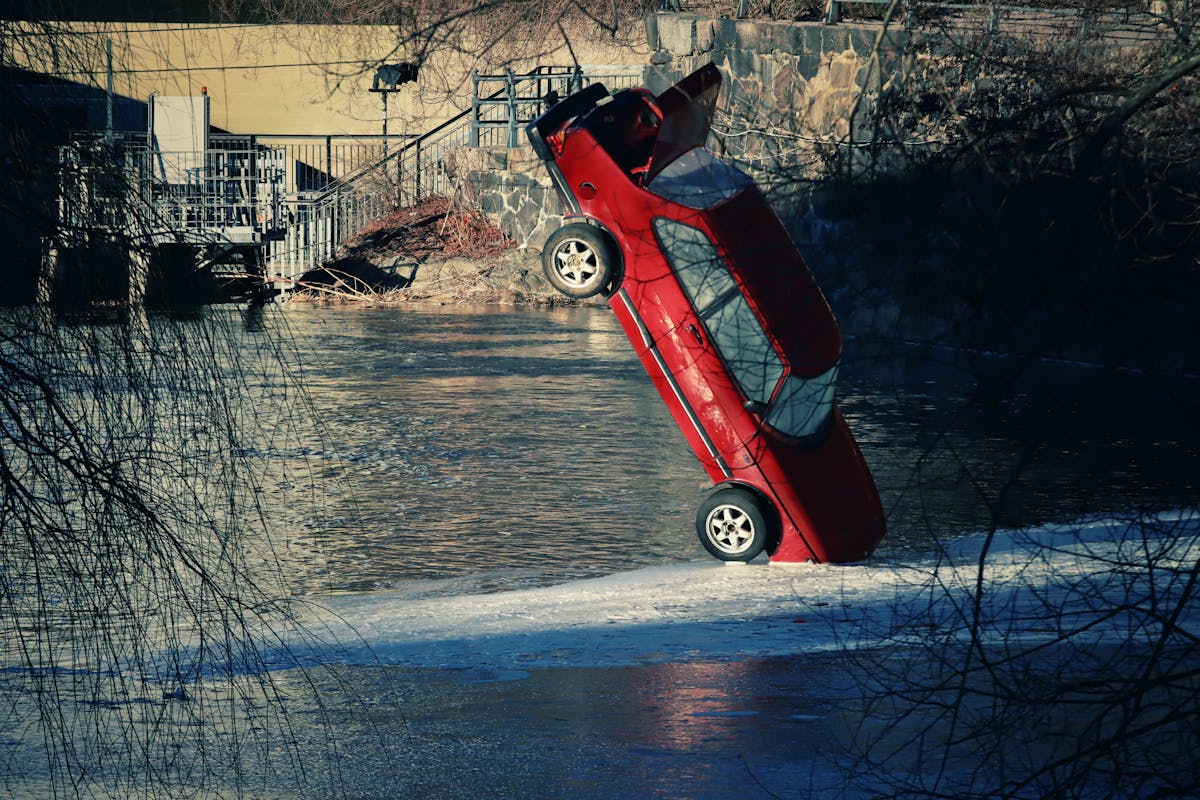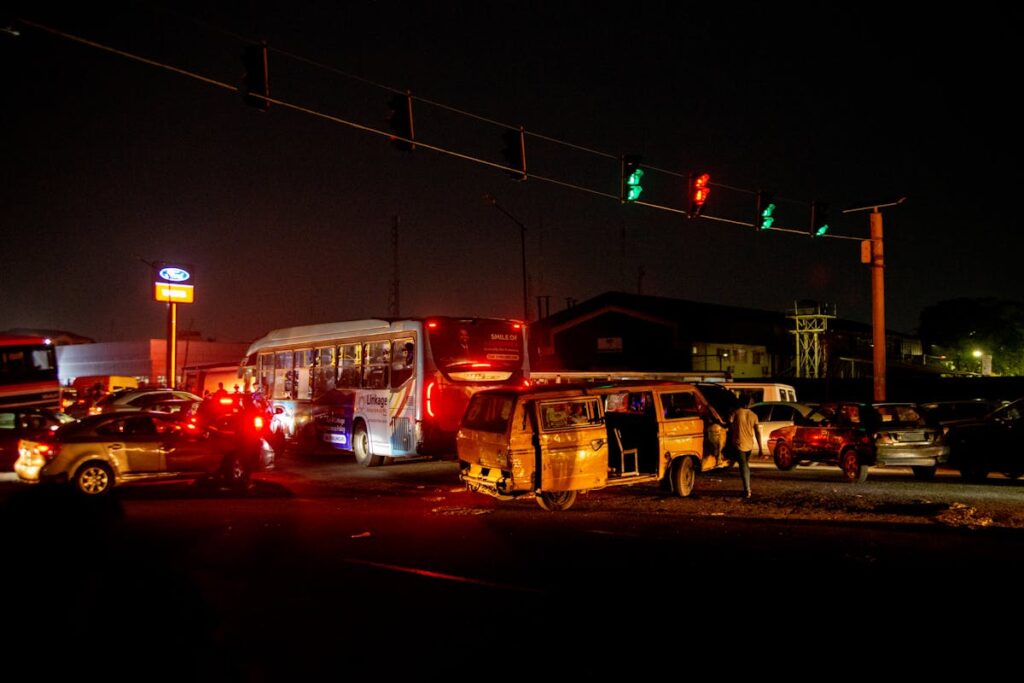Maneuvering a car accident trial in California can be a complex process, given the state’s distinct legal landscape. This process typically encompasses several stages, ranging from jury selection to the final verdict. Each stage carries its own weight, influencing the eventual outcome and potential compensation. As we unpack these stages, we will explore the nuances of California’s traffic laws, the role of insurance companies, and the significance of expert testimonies. This insight can be essential in understanding the potential implications for both parties involved.
Key Takeaways
- Expect familiarity with California traffic laws to play a crucial role in determining accident liability and interpreting case facts.
- The trial process will begin with opening statements and proceed to the presentation of evidence, including expert testimony and witness credibility assessment.
- Settlement negotiations may occur, requiring an understanding of case facts, law, and effective strategies to achieve a favorable outcome.
- Jury dynamics are critical, including the selection process and their role in impartially evaluating evidence and testimonies, significantly impacting the verdict.
- Post-trial procedures may include filing motions for verdict amendments or initiating the appeal process if the outcome is unfavorable.
Understanding California Traffic Laws
How well are you acquainted with California’s traffic laws? Your familiarity could greatly impact your accident liability, especially in a court setting. Understanding these laws beyond the basic road regulations is essential, as they also cover the more complex aspects of traffic violations. The depth of your understanding can considerably influence the outcome of your case, particularly in situations where the fault is contentious. Sound knowledge of these laws can help in interpreting the events leading up to the accident, parsing out the liability, and determining if any traffic violations contributed to the incident. As a result, investing time to understand California’s traffic laws can be instrumental in safeguarding your rights and interests during a car accident trial.
Role of Insurance Companies
While a thorough understanding of California’s traffic laws can greatly influence the outcomes of a car accident trial, it is equally relevant to take into account the role that insurance companies play in these proceedings. Insurance companies are a pivotal part of the process; they evaluate the insurance claim, determine the extent of liability, and the amount of compensation to be paid. The negotiation with the insurance adjuster can markedly affect your compensation. The adjuster’s role is to minimize the payout for the insurance company, so having a persuasive argument and strong evidence are essential in influencing the adjuster’s evaluation. Understanding these factors can help you navigate the complex landscape of a car accident trial in California.
Pre-Trial Legal Procedures
The pre-trial stage of a car accident lawsuit is an essential period, encompassing several key procedures that can notably influence the trajectory of the case. The initial step involves filing the lawsuit, which sets the legal course into motion, followed by the discovery process, where both parties gather pertinent information for their respective cases. Finally, pre-trial motions are filed, which can determine what evidence and testimonies are admissible during the trial, potentially shaping the trial’s outcome.
Filing the Lawsuit
Initiating a lawsuit sets the stage for a car accident trial, activating a series of intricate pre-trial legal procedures. Understanding the lawsuit timeline is essential for maneuvering this process. After the accident, the plaintiff has a time limit, known as the “statute of limitations,” to file a lawsuit. In California, this is typically two years.
The initiation of the lawsuit involves preparing a “complaint,” which details the plaintiff’s allegations and desired damages. This is then filed with the court, incurring specific filing fees. These fees vary depending on the amount sought in damages. It’s worth noting that a well-prepared complaint can set a strong foundation for the trial, making the investment in filing fees worthwhile. Properly filing the lawsuit is a significant first step towards achieving justice.
Discovery Process
After the lawsuit has been properly filed, a period of information gathering begins, known as the discovery process. This vital phase of the trial involves meticulous evidence gathering and adherence to strict discovery timelines set by California law. Both parties, through their attorneys, exchange pertinent information relating to the car accident. This can include medical records, witness testimonies, photographs of the accident scene, and any other evidence that could potentially impact the outcome of the trial.
The discovery process is not a mere formality, but a strategic and essential step to build a compelling case. It allows each party to assess the strength of their opponent’s case, identify weaknesses, and plan a persuasive argument for the trial. Therefore, effective navigation of the discovery process can greatly influence the trial’s final verdict.

Pre-Trial Motions
Traversing through a labyrinth of legalese, parties involved in a car accident trial often encounter an array of pre-trial motions. These motions are strategic legal maneuvers, aiming to set the tone for the impending trial or even dismiss it entirely. They enable parties to argue the merits of their case without proceeding to a full trial. Pre-trial motions can range from challenging the sufficiency of the opposing party’s pleadings to contesting the admissibility of evidence. They form an integral part of the legal strategies adopted by attorneys, designed to protect their clients’ interests. Understanding the intricacies of pre-trial motions is pivotal, as they can considerably influence the direction and outcome of the trial.
Negotiating a Settlement
While it may seem intimidating, negotiating a settlement is a critical stage of a car accident trial. Effective settlement strategies involve a deep understanding of the law, the facts of the case, and the injuries sustained. The negotiation tactics you or your attorney choose can greatly influence the outcome of your case. For instance, presenting a persuasive argument backed by strong evidence can compel the other party to settle. Your attorney’s ability to accurately estimate damages, such as medical expenses, lost wages, and pain and suffering, can also impact the settlement amount. Remember, a successful negotiation not only resolves the dispute but does so in a manner that respects your rights and interests.
Jury Selection and Role
The process of jury selection, often termed as ‘voir dire’, is a critical component in a car accident trial, determining the individuals who will assess the evidence and render a verdict. These jurors have a considerable role, entrusted with the duty of impartially evaluating the facts, applying the law, and ultimately deciding the case’s outcome. The jury’s decision holds substantial weight, as it can greatly influence the final ruling, affecting both parties involved in the accident trial.
Understanding Jury Selection Process
Ever wondered how the jury is selected for a car accident trial? The process begins with a pool of potential jurors randomly chosen from public records. The selection criteria are based on the principle of impartiality and include factors such as the potential juror’s ability to comprehend English, lack of a criminal record, and the absence of any biases that would prevent them from making a fair decision. Jury demographics are also taken into account to guarantee representation from a cross-section of the community, which includes different age groups, ethnic backgrounds, and genders. This process guarantees that the jury, a cornerstone of our justice system, is made up of individuals who can objectively analyze the evidence presented and determine the outcome of the trial.
Jurys Duties in Trial
Having understood the selection process, we now turn our attention to the duties of the jury during a car accident trial. The jury responsibilities are essential to the just outcome of the case. They must meticulously evaluate the presented evidence, carefully listen to testimonies, and justly apply the law as instructed by the judge. Their role goes beyond passively absorbing information; they actively engage in discerning the truth. A vital aspect of jury duties lies in maintaining jury impartiality. This demands that they set aside personal biases, ensuring a fair trial for all parties involved. The jury’s role is not merely a civic duty, but a cornerstone of our justice system, determining the trajectory of the trial.
Impact of Jury Decision
While it may seem that the role of the jury ends with their verdict, the impact of their decision extends far beyond the confines of the courtroom. The jury impact is felt by both parties involved, potentially shaping their lives for years to come. A guilty verdict can result in hefty fines, incarceration, or other penalties for the defendant. Conversely, a not-guilty finding might vindicate the accused, but leave the plaintiff without closure or recompense. The verdict implications underline the gravity of the jury’s function. Their decision not only determines the immediate outcome of the trial but also sets a precedent for future cases, influencing societal perceptions and expectations about justice in car accident trials.
Trial Process and Testimonies
Although it can be a challenging experience, understanding the process of a car accident trial and the role of testimonies is essential. The trial process begins with opening statements, followed by the presentation of evidence and testimonies. Witness credibility plays a considerable role, as the jury must determine the trustworthiness of each account. The reliability of a witness can be influenced by their character, consistency of their statement, and their demeanor during testimony. Expert testimony, typically from accident reconstructionists or medical professionals, provides specialized knowledge to help the jury understand complex issues. This evidence-based, impartial perspective can greatly influence the case outcome. Understanding these elements can help you navigate the judicial process more confidently.
Post-Trial Steps and Appeals
What happens after the conclusion of a car accident trial? The post-trial steps begin with the filing of post-trial motions, which can be done by either party. These are usually requests for the court to amend or overturn the verdict, based on claims of legal errors or jury misconduct. If these motions are denied, the losing party can initiate the appellate process. This entails filing a notice of appeal to a higher court, presenting legal arguments on why the trial court’s decision was incorrect. The appellate court’s ruling can either affirm, reverse, or modify the lower court’s decision. It is essential to understand that appeals are based on legal issues, not factual disagreements.
Frequently Asked Questions
What Are the Potential Consequences if I Am Found Liable for the Accident?
If found liable for the accident, substantial financial repercussions may ensue. You may be required to compensate for damages and injuries. Additionally, your insurance premiums could increase, further amplifying the financial strain.
How Can I Find a Reliable Car Accident Attorney in California?
To find a reliable car accident attorney in California, consider utilizing referral sources such as local bar associations or personal recommendations. Additionally, verify the attorney’s qualifications, including experience and success in handling similar cases.
How Long Does a Typical Car Accident Trial Take in California?
In the labyrinth of California’s court procedures, the trial duration for a typical car accident case can vary greatly. However, most trials span a few days to a week, making precision in preparation paramount.
Can I Seek Compensation if the Accident Aggravated a Pre-Existing Injury?
Yes, you can seek compensation if an accident in California aggravated a pre-existing injury. Thorough injury documentation is essential to establish the link and determine compensation eligibility. Consult a legal professional for guidance.
What Happens if I Cant Attend the Trial Due to Medical Reasons?
If medical reasons prevent trial attendance, it’s essential to provide medical documentation. This could lead to a trial postponement. In California, nearly 50% of cases are rescheduled, often due to unforeseen circumstances like health issues.

